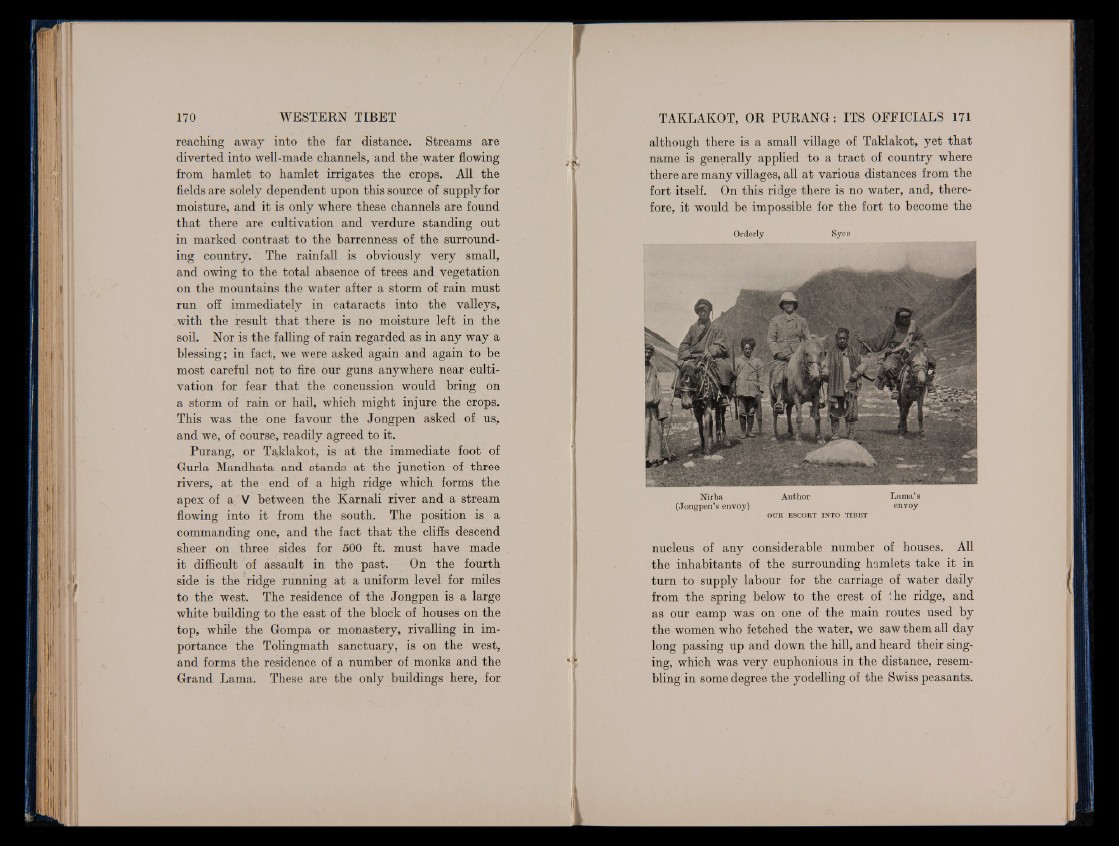
reaching away into the far distance. Streams are
diverted into well-made channels, and the water flowing
from hamlet to hamlet irrigates the crops. All the
fields are solely dependent upon this source of supply for
moisture, and it is only where these channels are found
that there are cultivation and verdure standing out
in marked contrast to the barrenness of the surrounding
country. The rainfall is obviously very small,
and owing to the total absence of trees and vegetation
on the mountains the water after a storm of rain must
run off immediately in cataracts into the valleys,
with the result that there is no moisture left in the
soil. Nor is the falling of rain regarded as in any way a
blessing; in fact, we were asked again and again to be
most careful not to fire our guns anywhere near cultivation
for fear that the concussion would bring on
a storm of rain or hail, which might injure the crops.
This was the one favour the Jongpen asked of us,
and we, of course, readily agreed to it.
Purang, or Taklakot, is at the immediate foot of
Gurla Mandhata and stands at the junction of three
rivers, at the end of a high ridge which forms the
apex of a V between the Karnali river and a stream
flowing into it from the south. The position is a
commanding one, and the fact that the cliffs descend
sheer on three sides for 500 ft. must have made
it difficult of assault in the past. On the fourth
side is the ridge running at a uniform level for miles
to the west. The residence of the Jongpen is a large
white building to the east of the block of houses on the
top, while the Gompa or monastery, rivalling in importance
the Tolingmath sanctuary, is on the west,
and forms the residence of a number of monks and the
Grand Lama. These are the only buildings here, for
although there is a small village of Taklakot, yet that
name is generally applied to a tract of country where
there are many villages, all at various distances from the
fort itself. On this ridge there is no water, and, therefore,
it would be impossible for the fort to become the
Orderly
Nirba Author Lama’s
(Jongpen’s envoy) envoy
OUR ESCORT INTO TIBET
nucleus of any considerable number of houses. All
the inhabitants of the surrounding hamlets take it in
turn to supply labour for the carriage of water daily
from the spring below to the crest of ihe ridge, and
as our camp was on one of the main routes used by
the women who fetched the water, we saw them all day
long passing up and down the hill, and heard their singing,
which was very euphonious in the distance, resembling
in some degree the yodelling of the Swiss peasants.